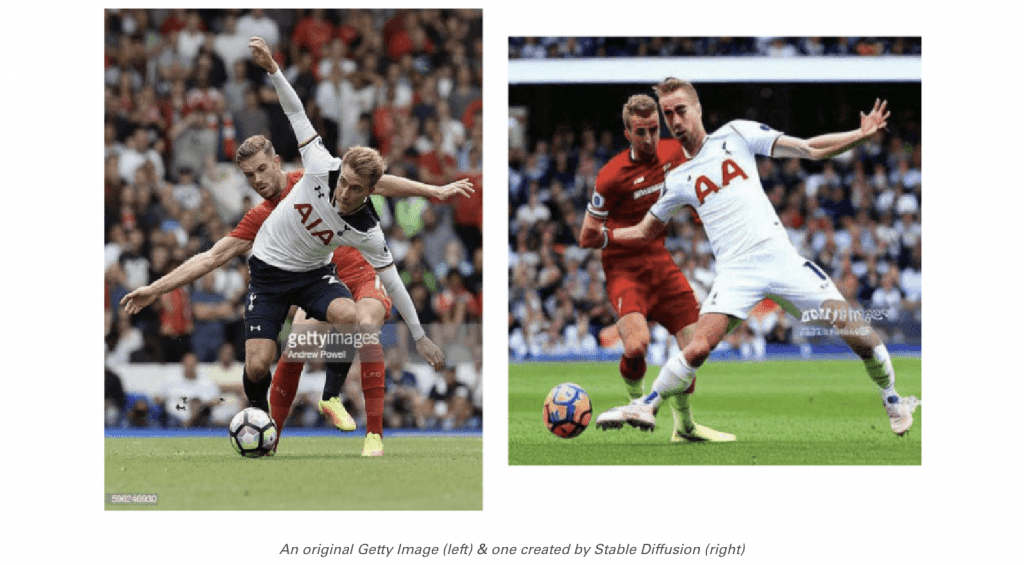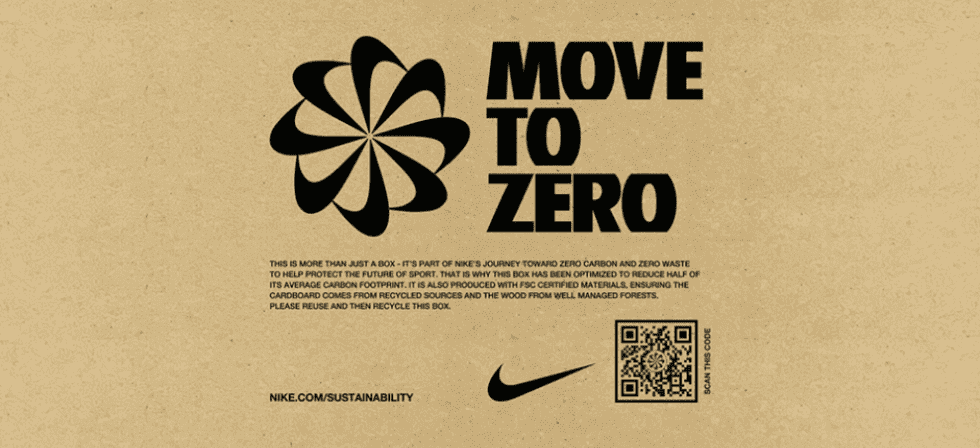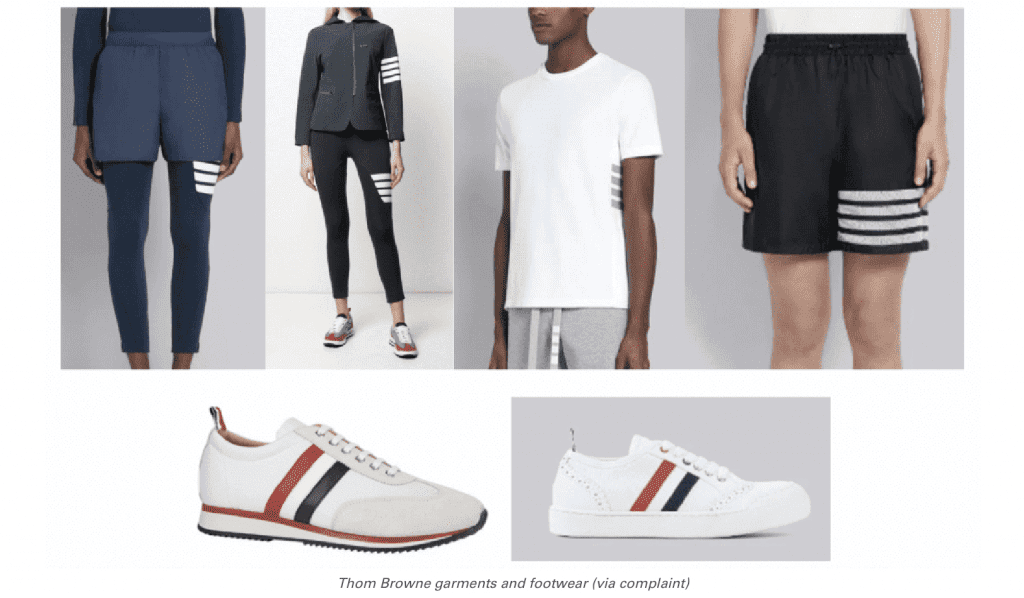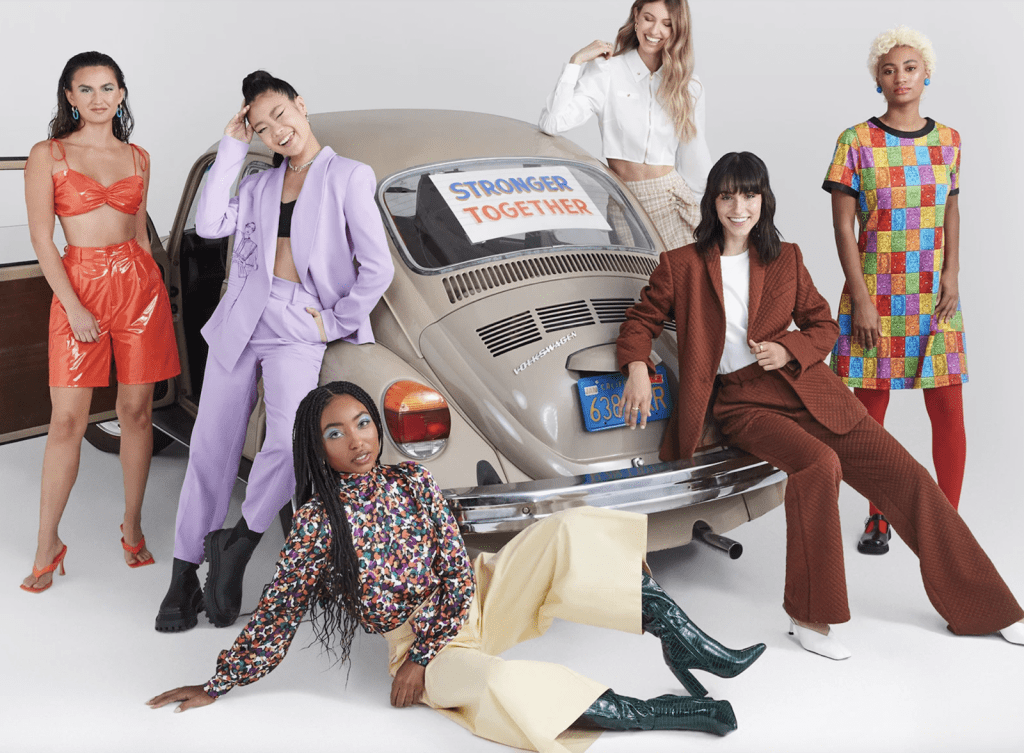In 2023, a number of new fashion, retail, and tech industry lawsuits – and developments in previously-filed cases – stood out in the crowded landscape of litigation because they indicate larger trends within these spaces, and other issues worth keeping an eye on. Among these are cases that stem directly from the availability and growing use of artificial intelligence (“AI”) tech, including generative AI. The widespread adoption of generative AI platforms, from conversational chatbot ChatGPT to text-to-image generator Midjourney, has brought with it an onslaught of complicated questions about authorship and copyright and trademark infringement (and fair use), and a steadily rising number of lawsuits.
Looking beyond AI, stock-drop allegations, the use of trademarks in the secondary market, the reach of First Amendment, and the marketing of companies and/or their offerings as sustainable or otherwise ESG-friendly were at the center of a number of lawsuits in 2023. Still yet, competition was the central theme in at least a few notable new lawsuits, such as the FTC’s case against Amazon, an enduring fight between adidas and Thom Browne, and a string of cases that pit ultra-fast fashion companies Shein and Temu against one another.
With the foregoing in mind, here is a sneak peek at some of the many interesting and notable lawsuits and legal developments that we saw in 2023, and what cases we will be watching going forward in 2024 …
1. The Shein v. Temu & Temu v. Shein Lawsuits
Shein and Temu took their fight over dominance in the U.S. market – where they have overtaken competitor brands like H&M, Fashion Nova, Forever 21, and Zara in amassing revenue and market share, alike – to court this year. The legal battle of the ultra-fast fashion giants first got its start in December 2022 when Shein filed suit against Temu, accusing its rival of “willfully and flagrantly” infringing its “exclusive and valuable trademark and copyright rights” in order to get ahead in the U.S. market.
Fast forward to this summer and Temu filed a lawsuit of its own, claiming that in the wake of its expansion into the U.S., Shein “chose not to compete on the merits by offering better prices, terms, service, or quality,” and instead, opted to carry out a “scheme of coerced exclusivity, threats, intimidation, and direct financial punishments,” which amounts to conduct that is “the opposite of competing fairly and within the bounds of applicable law.”
In joint stipulations of voluntary dismissal in October, Shein and Temu alerted federal courts in Massachusetts and Illinois that they were looking to dismiss their respective cases – without prejudice, bringing an end to those cases, but inevitably leaving the door open for future actions, such as the one that Temu filed in a federal court in Washington, D.C. on Dec. 14, claiming that in response to Temu’s success in the U.S. market, Shein has “hatched a desperate plan to eliminate the competitive threat” posed by its rival.
Temu alleges that in addition to engaging in a “mafia-style” scheme to intimidate suppliers, Shein is also “manipulating the U.S. Copyright Office, misusing the Digital Millennium Copyright Act procedures designed to protect legitimate rights holders, subverting the U.S. legal process to disrupt Temu’s operations and damage Temu’s valuable brand, and [engaging in] the unlawful copying of Temu’s IP.”
2. Shein Faces RICO Charges
At the same time, Shein also landed on the receiving end of a headline-making lawsuit – albeit one waged by different plaintiffs – this year. The retailer is being accused of not only carrying out “large-scale and systematic IP theft from U.S. designers large and small,” but of also engaging in infringement-related racketeering activities in the process. According to the complaint that they filed in a California federal court in July, three independent designers claim that Shein and various related entities are on the hook for copyright and trademark infringement in connection with their practice of “produc[ing], distribut[ing], and selling exact copies of their creative works,” which they allege is “part and parcel of Shein’s ‘design’ process and organizational DNA.”
The particularly interesting aspect of the complaint comes by way of the plaintiffs’ Racketeer Influenced and Corrupt Organizations (“RICO”) Act claims, which stem from Shein’s alleged infringement scheme.
As for what the Shein case means from a responsible AI perspective, you can find a dive into that right here.
3. The Rise in AI-Centric Cases
The rising adoption of AI across industries (including fashion, retail, luxury, etc.) that has come about in recent years is bringing with it no shortage of high-stakes lawsuits in 2023, as parties look to navigate the budding issues that these relatively new models raise for companies and creators, alike. A growing number of lawsuits focus on generative AI, in particular, centering on how the underlying language models are trained, the data that is used to do so, and the nature of the user-prompted output (which is alleged to be infringing in many cases), among other things. These cases are expected to shape how AI titans like OpenAI and co. build and operate their models going forward, what infringement – and fair use – looks like in this space, and how damages will be measured.
Our running list of AI-centric cases can be found right here.

4. Greenwashing/Climate Cases Continue
Greenwashing litigation has been making headlines in fashion and beyond, with H&M, Allbirds, Nike, and Canada Goose being among some of the big-name companies that have been targeted with lawsuits as a result of sustainability or broader ESG claims (think: the use of “sustainable,” “green,” “eco-friendly,” “conscious,” etc.) in their advertising campaigns. Among some of the key cases in this realm are …
– Commodore v. H&M (filed Jul. 2022 in SDNY): Chelsea Commodore accused H&M of deceptive acts or practices, false advertising in violation of NY GBL, and breach of express warranty for using Higg scorecards to justify charging premium prices for its “sustainably-made” clothing products that are “no more sustainable than items in [H&M’s] main collection.” H&M filed a motion to dismiss in February 2023, arguing that the “foundation of this entire case rests on” the Commodore’s “strategic omission of key wording in H&M’s advertising.” Specifically, H&M argued that “[b]y removing the word ‘more’ from [its] statement ‘at least 50% more sustainable materials,’” Commodore “alters its comparative statements and leverages a repackaged version as a basis to claim widespread deception.”
In a notice of December 13, Commodore and a fellow named plaintiff alerted the court that they would dismiss their claims with prejudice, bringing an end to the case.
– Lizama v. H&M (filed Nov. 2022 in E.D. Mo.): Plaintiffs filed a proposed class action against H&M for allegedly making “false and misleading” representations about its Conscious collection, and thereby, engaging in false advertising, deceptive acts and practices, and unjust enrichment, and running afoul of Missouri’s Merchandising Practices Act (“MMPA”). In a motion to dismiss in December 2022, H&M argued that by making claims about how its Conscious collection wares are “more sustainable” than its regular clothing, it is merely using comparative language, which would not mislead consumers into believing that its offerings are inherently “sustainable.”
The court granted H&M’s motion to dismiss in May 2023 on the basis that the “only reasonable reading” of its ads is that the Conscious collection “uses materials that are more sustainable than its regular materials.” The court also noted that H&M “actually tells its consumers … that ‘fashion has a huge impact on the environment’ and that ‘the only trends worth following [are] recycling and repairing’ clothes.” Given the language on H&M’s website, the court said that “a reasonable consumer would not be misled into thinking that purchasing any new article of clothing (even from the Conscious line) was ‘environmentally friendly.’”

– Ellis v. Nike (filed May 2023 in E.D. Mo.): Maria Ellis filed suit against Nike in May, alleging that it is using marketing materials that are “replete with statements that [its] products are ‘sustainable,’ made with ‘sustainable materials,’ ‘eco-friendly,’ and environmentally friendly.” Contrary to Nike’s many “green” representations, Ellis alleges that the company’s products “plainly do notlead to ‘Sustainability,’ are not ‘made with recycled fibers’ which ‘reduce waste and our carbon footprint,’ do not support a ‘Move to Zero carbon and zero waste,’ and are not made with ‘sustainable’ and environmentally friendly materials.” Ellis primarily accuses Nike of violating the MMPA.
Nike has since filed a motion to dismiss, largely relying on the outcome in Lizama v. H&M, namely, the court’s finding that “disclosure of information regarding the representations at issue – through qualifying statements or additional context – can prevent a reasonable consumer from being misled.”
5. Adidas v. Thom Browne: A Battle Over Stipes & Competition
Thom Browne prevailed in a trademark trial over stripes (and competition) early this year, with a New York jury finding that the brand did not engage in trademark infringement or dilution by offering up apparel and footwear bearing a four-stripe motif. You will recall that adidas sued the fashion brand – which is best known for its high-end tailored pieces – back in June 2021, claiming that Browne’s expansion into activewear made it likely that consumers would be confused by its striped wares. Counsel for Browne successfully focused on the difference in positioning between the brands – and critically, their drastically different prices – to chip away at adidas’s likelihood of confusion assertions.

Adidas lodged a notice of appeal in February, alerting the U.S. District Court for the Southern District of New York of its appeal to the Second Circuit. At the heart of adidas’ appeal? A bid for a new trial, with adidas arguing that Browne “intentionally withheld [a number of] emails during discovery,” including four emails that were sent during the relevant discovery period for the parties’ trial, in which Thom Browne employees “admit to the ultimate liability issue in this case – a likelihood of confusion between the company’s ‘Four Bar’ design and adidas’s Three-Stripe Mark.”
For a timeline of the case, that is right here.
6. The FTC’s Fight Against Amazon
The Federal Trade Commission (“FTC”) and 17 state attorneys general filed their widely-anticipated lawsuit against Amazon in September, alleging that the online retail and technology company is “a monopolist that uses a set of interlocking anticompetitive and unfair strategies to illegally maintain its monopoly power.” In the 172-page complaint, the FTC and its state partners claim that Amazon’s actions “allow it to stop rivals and sellers from lowering prices, degrade quality for shoppers, overcharge sellers, stifle innovation, and prevent rivals from fairly competing against Amazon.”
This is a short excerpt from TFL’s Year in Review, which will be published exclusively for TFL Pro+ subscribers on January 8, and dives into everything from deals that further consolidated the fashion/luxury segments over the past year to the rise in ESG-centric actions from regulators and consumer plaintiffs – and the increasing adoption of AI technologies. Inquire today about how to sign up for a Professional subscription and gain access to all of our content.











